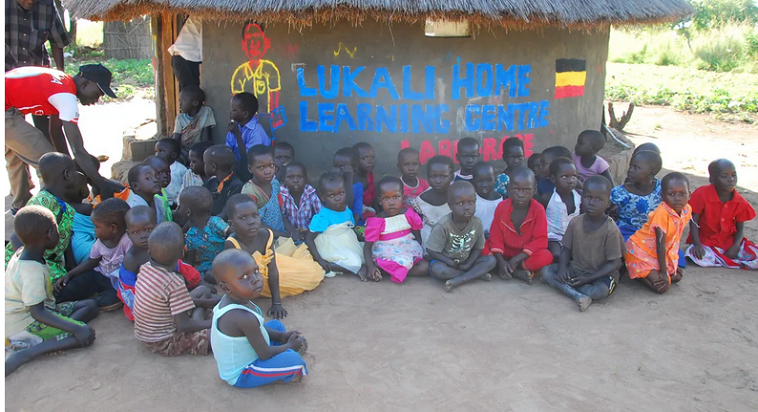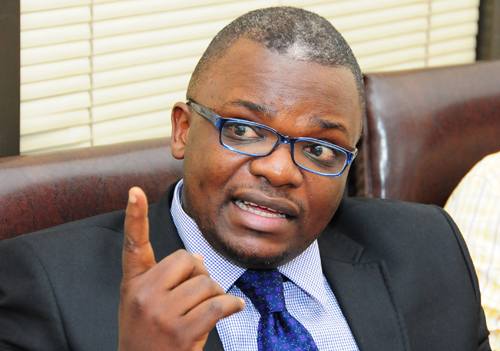The ministry of education and sports has encouraged teachers in communities to give support to the children in their localities. According to the ministry this is intended to facilitate continued learning especially for the lower primary pupils.
Since the first lock down that happened early in 2020, leaners in the lower primary classes of (P.1, P.2, P.3) have had no opportunity to attend class even when schools reopened in a phased way due to the second lock down that was announced a day before they were supposed to resume.
Now government says education is a shared responsibility and communities should come out and extend support to the learning of children especially the lower primary classes who have not been to class since the first lockdown of 2020.
Joyce Moriku Kaducu, the state minister primary education says that with the help of the village health teams -VHTs, communities can mobilize their children gather in a conducive learning environment with support of the parents and they can be supported to learn by either the formal or informal teachers within the community.
She says the role of the VHTs and the village covid 19 task force is to ensure that the Standard Operating Procedures are observed.
Kaducu says government decided to encourage community led learning in order to help the children who are disadvantaged and also to restore the participation of the community in the education of the child in their village.
She says even without the pandemic the community will be expected to interest themselves in knowing why a child is not in school while the others are learning.
Kaducu goes on to explain that during this period when the country is faced with the covid-19 challenge the community should ensure that children learn within their localities.
She says teachers on government pay roll and those with a volunteering spirit should take through the learners at the lower primary in numeracy and literacy.
When the government was sending learners home due to the pandemic it discouraged them from congregating and also asked parents to help their children to continue studying by creating a conducive learning environment for them.
Learners were expected to revise their notes and also study from the home study material that was provided to them by government and the radio and television lessons.
Jackson Turyahumura, the District Education Officer (DEO) Rukungiri district testifies that in his area the community learning has been a success.
He says children at the lower primary level are supported to learn given that they had less time in school since 2020 due to the pandemic.
Turyahumura explains that with observation of SOPs they have been able to support these learners by organizing them in groups of 20 per teacher.
He says with support of USAID through the Education Development Centre (EDC), an NGO, they were able to develop learning materials for the children in lower primary level who they prioritized because they have had less time in school in a period of two years.
‘’They identify places outside schools like church compounds and other convenient places for learning, select groups of 20 pupil per teacher meeting for 50 minutes for primary one and two,” says Turyamuhura. “Then for the primary three and four they meet for an hour under the same arrangement of 20 learners per teacher.”
Meanwhile some parents have been improvising undercover learning to ensure that their children continue to study despite schools remaining closed for the second lockdown.
Joseph Matovu, a parent of two kindergarten children led neighbors in his community to hire private teachers to educate their children at home.
He says during the first lockdown he was forced to come up with an idea of having an arrangement with private teachers which he says started with an objective of keeping the brains of these learners active.
Matovu explains that when schools were closed for the second time they now changed their aim and focused on teaching and assessing their children for promotion when schools reopen.
He says after the private coaching all the parents resolved to give their children to the school that gave them the teachers.
‘’The initiative has helped our children as a community and we are now sure that our children will not miss out on anything even when promoted without formal completion of the syllabus’’ says Matovu.
Another parent Henry Lugalambi, from the same community of Bulamazi LC1 IN Muduuma Sub County, says that he was inspired by his neighbours after learning that his school had no arrangement for the learners during the lockdown.
Lugalambi explains that though he had not planned to get his daughter in primary three elevated to another class he was forced due to the time and the level of education his child has attained during the private coaching.
‘’It was not one of the options I had but after failing with her school and the government programs then I found it better for my child to have an interface with the teachers who could come home on prior arrangement, ‘’ Lugalambi says.
These are among the many parents who have been taking on learning in their given localities but doing it with fear of government sanction.
Other parents have managed with help of their schools by having online lessons while many had nothing going by way of academic learning.
-URN





